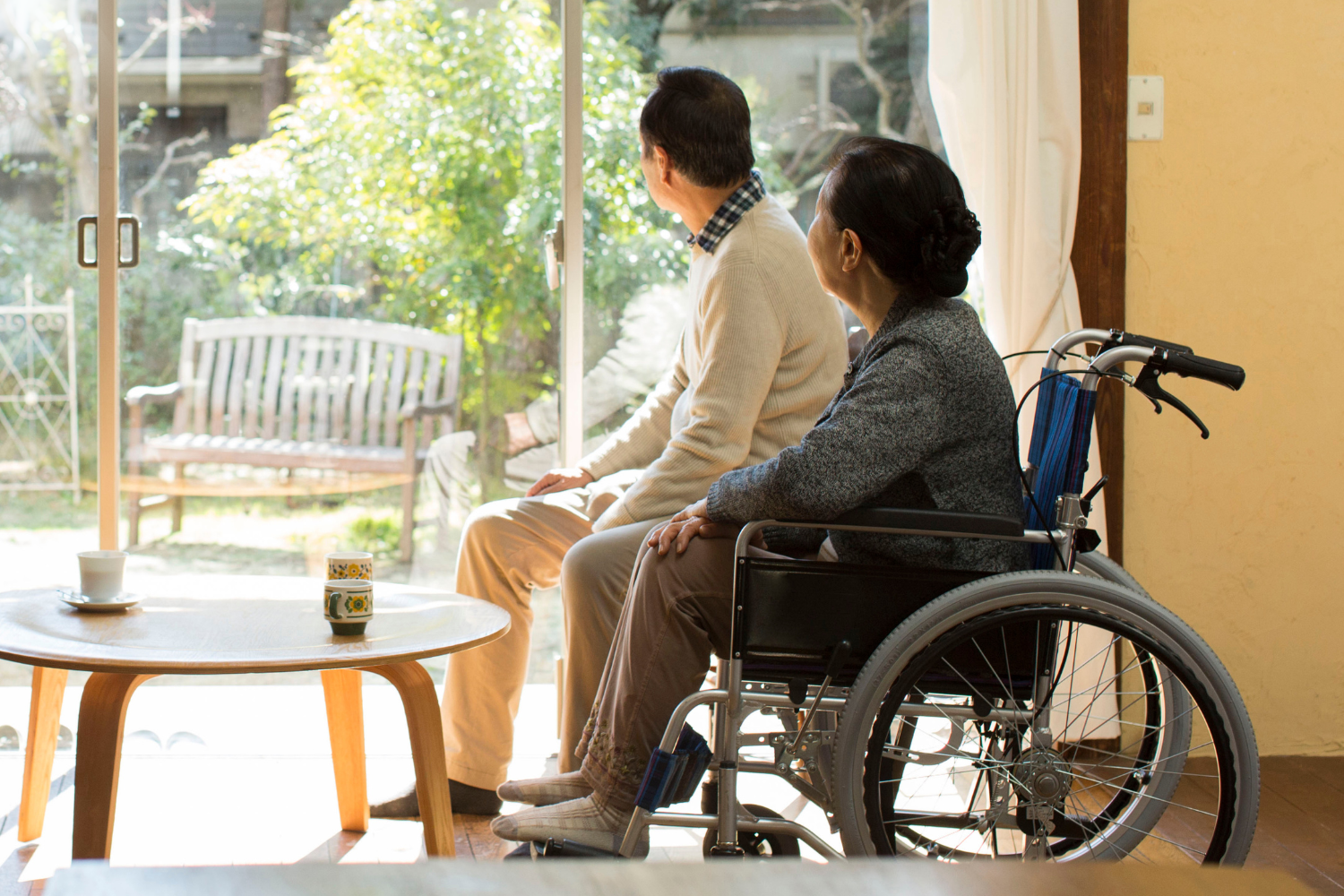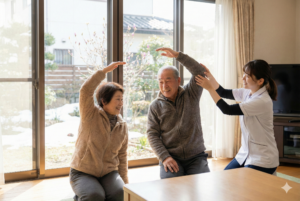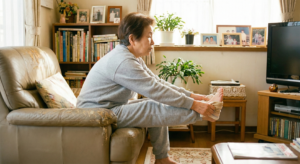Many people may be concerned about what kind of lifestyle support they will need and what kind of services they will be able to use when they are certified as "requiring long-term care 3. This article provides an easy-to-understand explanation of the status and characteristics of those requiring long-term care 3, available long-term care services, and lifestyle modifications.
What is a condition requiring long-term care 3?
Under the long-term care insurance system, people are classified into two categories according to their level of need for long-term care: "Support 1 and 2" and "Needs 1 to 5. Nursing care 3 is a certification category that falls right in the middle of the levels of nursing care required,"moderate care needs."It is considered to be a
Many aspects of daily life require assistance, specifically the following conditions
- Need support to get up, stand up, and move around
- Needs full assistance when toileting and bathing
- May be able to eat on own, but needs supervision and some assistance
- Needs help with dressing, undressing, dressing, etc.
- Cognitive decline may be present, making it difficult to understand the situation
What services are available?
Once certified as requiring long-term care 3, a wide range of long-term care insurance services are available. Specifically, the following services are available
1. home-visit services
- Home-visit care (home help)
Assistance with daily living, such as eating, eating, and bathing, is available. - home nursing
Medical care and health care assistance is available at home.
2. day-care services (day service)
- Functional training, bathing, meals, and recreationis the facility where the
- In need of nursing care 3,Average of 3-5 times a weekis often possible and can be a great support for home care.
3. short-term residential service (short stay)
- Temporary care can be received by staying at the facility, which also reduces the burden on caregivers.
4. rental of welfare equipment and home modification
- Environmental improvements can be made to support independence in daily living, such as the installation of power beds, wheelchairs, and handrails.
5. facility services
- If living at home becomes difficult, admission to a long-term care welfare facility for the elderly (special care) or other facilities is an option.
Living arrangements and family support
Once a person requires long-term care 3, it is essential to make good use of long-term care services and cooperate with family and community in order to continue living at home.
◎Point 1: "Combination" of long-term care insurance services
By combining multiple services, such as home-visit care + day service + short stay, it is possible to stabilize the individual's life and reduce the burden on the family.
◎Point 2: Consult with a care manager
Care plans can be created flexibly according to the person's condition and wishes. Aim for reasonable nursing care while consulting with a reliable care manager.
Let's also take advantage of community support.
Based in Numata City, Gunma PrefectureTaiseikai Groupprovides community-based care services.
- Supporting Life at HomeHome care and home nursing
- Safe and securenursing in the home
- Fulfill your family's "I want to take a break" needs.short stay
- Can be admitted according to the situation.Special nursing homes and health care facilities for the elderly
None of the above,Medical and welfare professionals work together to provide supportWe have a system in place to provide support for the elderly. We support the family to reduce their burden while staying close to the person's wish to continue to live in their familiar community.
▶ For more information, click here.
Medical Corporation Taiseikai Uchida Hospital // Social Welfare Corporation Kuninkai
summary
While the number of situations requiring daily assistance increases for those requiring nursing care 3, it is still quite possible for them to continue living at home.
The important thing is to choose the appropriate service for your condition and not to overdo it.
Please don't take care of your caregiving concerns alone, but rely on community resources and professional organizations.
If you have any questions or concerns, first consult with your local comprehensive support center or long-term care office.
Please start with what you can do, one step at a time, starting close to home so that you and your family can continue to smile.
\ Please feel free to contact us if you have any problems /.
Medical Corporation Taiseikai Uchida Hospital Community Medical Cooperation Office
(TEL) 0278-24-5329









